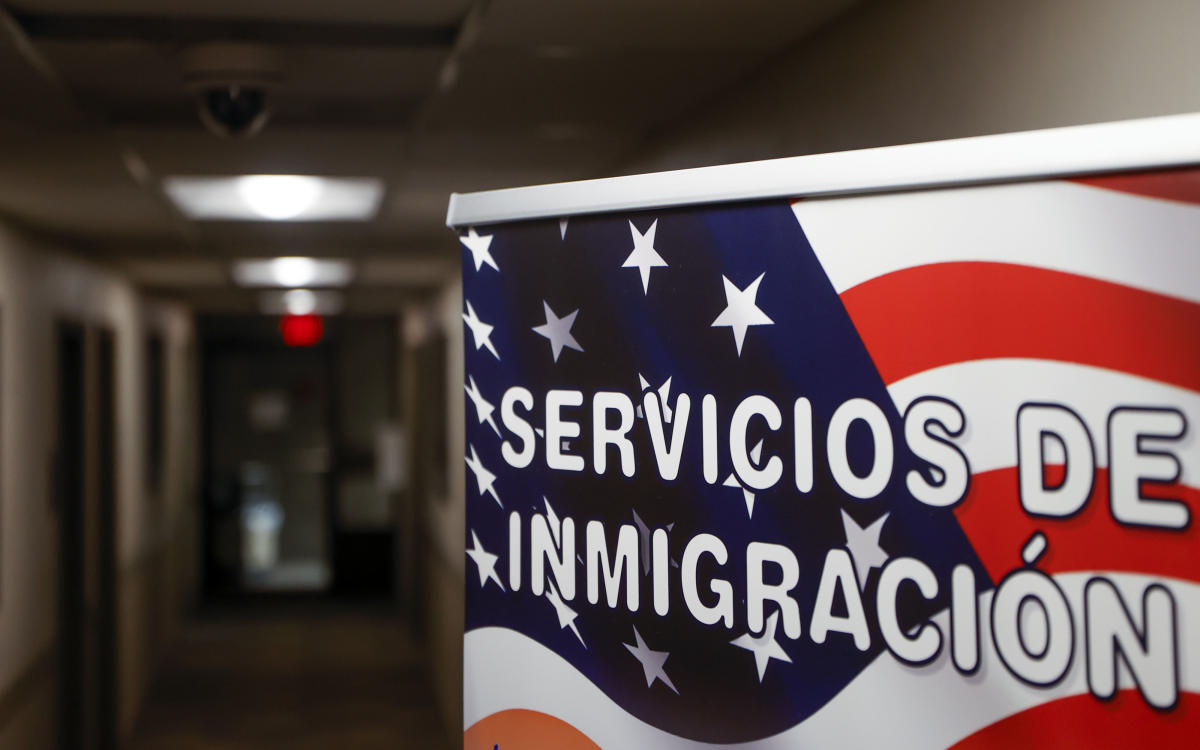Carlos Bohorquez hopes to receive good news about his residency status by mail before the end of the year. But he is resigned to the uncertainty and constant waiting.
Bohorquez, a 41-year-old Venezuelan immigrant who lives in Riverview, filed for asylum in 2014. It took eight years before he had his petition approved, which allows him to stay in the U.S. as long as conditions in his home country don’t improve. But he still hasn’t heard back on his bid to stay here permanently.
Like him, thousands of immigration applications await their day across the country amid a legal backlog of historic proportions. According to federal data collected by Syracuse University’s Transactional Records Access Clearinghouse, the U.S. court backlog has surged past 3 million cases in the last year, including cases of asylum-seekers and immigrants, some who have been in the country for years, seeking permanent residency.
Florida’s backlog of cases is more than 481,000, a massive jump compared to 2012, when there were only 17,000 pending cases. The four states with the next-highest numbers of backlog cases are Texas (458,630), California (348,138), New York (344,505) and Illinois (211,096).
The backlog continues to rise due to the influx of new immigrants and the crisis at the U.S. southern border with Mexico, said Ana Lamb, a Wimauma immigration rights activist.
“This creates chaos not only for each individual or family but for the immigration system,” Lamb said.
The backlog can be attributed to several factors, including a growing number of asylum applications and appeals, cases from previous years remaining open, and pending deportation proceedings. The shortfall in the federal immigration budget has also affected the timely resolution of permanent residence petitions and work permits.
In 2023, federal authorities made more than 2.2 million arrests at the U.S.-Mexico border, one of the most ever recorded, according to U.S. Customs and Border Protection. The Diocese of St. Petersburg covers Hillsborough, Pinellas, Hernando, Pasco and Citrus counties, and annually serves 2,000 people through immigration services. It says that the southern border heightens the need for meaningful immigration reform.
Bohorquez was at risk of losing his job at a local television production company due to delays in his asylum process and the need to renew his work permit. He said the pressure of not knowing what would happen only heightened his emotional distress.
“Waiting for eight years has been very tough,” he said. “I know everyone tries their best in life, but it’s too difficult under those circumstances.”
Milton Toro Márquez, an immigration attorney in Tampa, said the backlog indicates a complete breakdown in the immigration system and the need for more uniformity.
He said the situation highlights the challenges faced by immigrants with different temporary permits, such as a form known as the I-220A, or order of release on recognizance. The I-220A allows the recipient to work and have a driver’s license but does not grant permission to adjust their status to permanent residency.
Making specific legal changes to temporary permits and equivalent forms would allow immigrants to adjust their status and reduce overcrowding in local courts, Toro said.
“This would alleviate numerous cases currently in the court system and enable immigration courts to prioritize other deportation cases that appear to be more critical,” he said. “This is one of the many issues immigrants face today.”
Jordan Fischetti, an immigration policy fellow for Americans for Prosperity, a libertarian conservative political advocacy group affiliated with the Koch brothers, said the backlog is not only unsustainable but volatile. The average asylum case takes over four years to complete in immigration court, and often several more, according to him. Hiring more immigration judges and prosecutors can be a good start, he said.
In its budget proposal for the fiscal year 2024, the U.S. Justice Department requested $1.46 billion for the Executive Office for Immigration Review to hire 150 new judges, legal support staff, and 948 new permanent employees. The Executive Office is the agency responsible for conducting immigration court proceedings.
“Better legal options will ultimately result in fewer illegal crossings,” Fischetti said, “which, in turn, means less people in immigration court and a more manageable backlog.”




